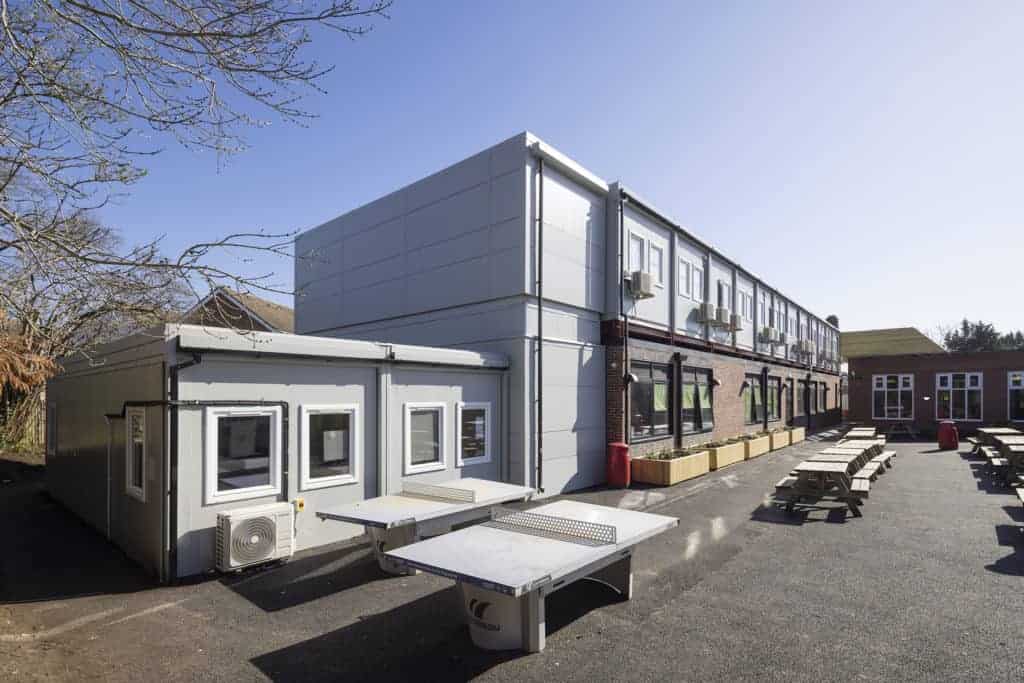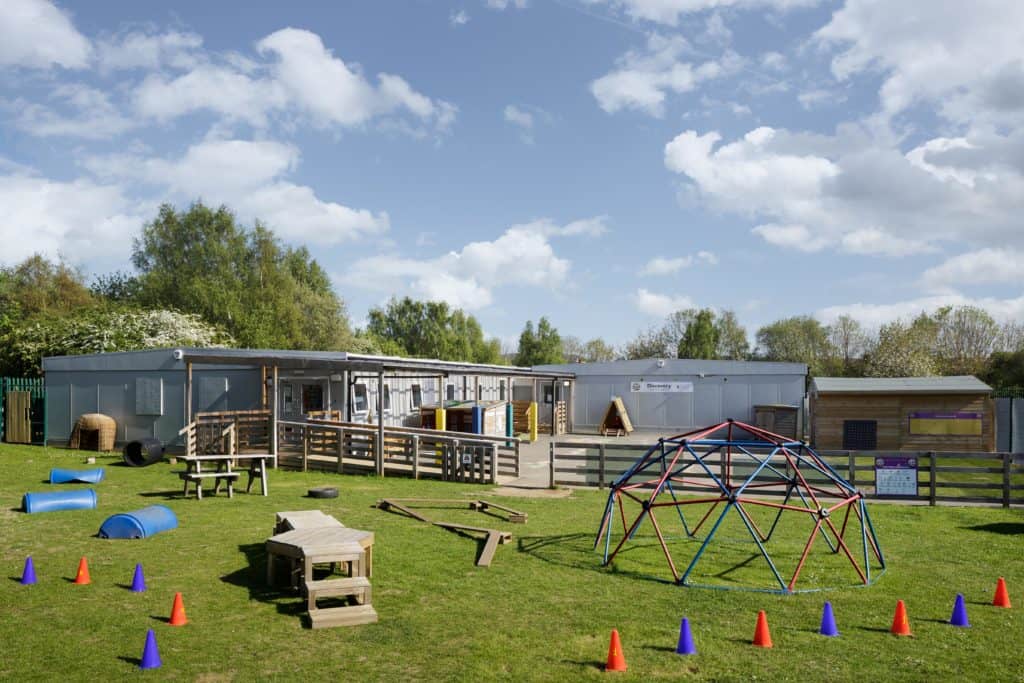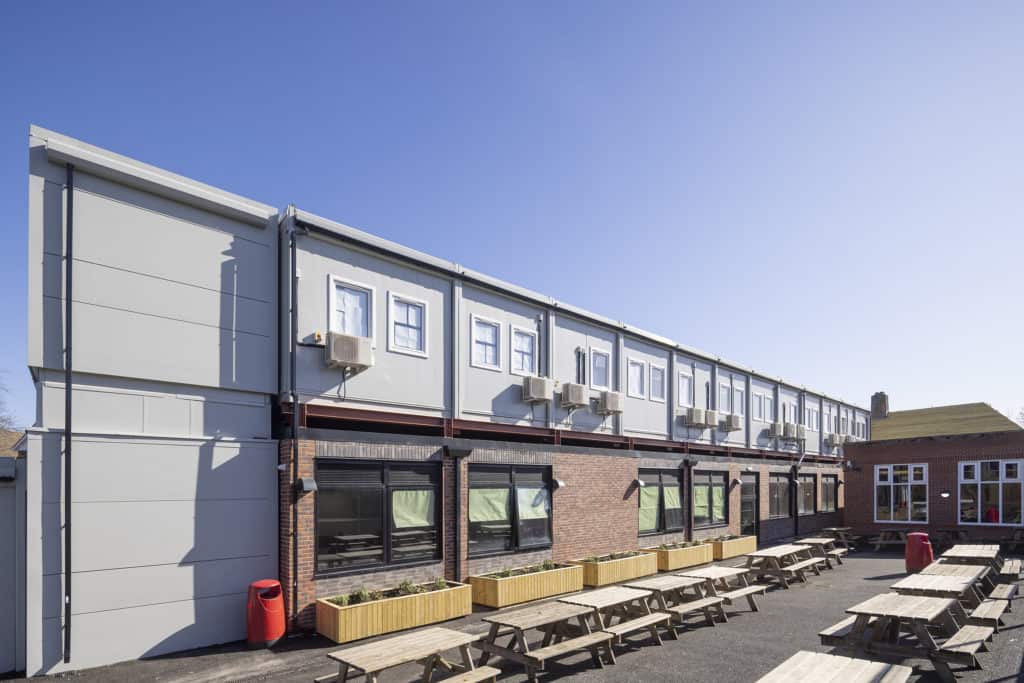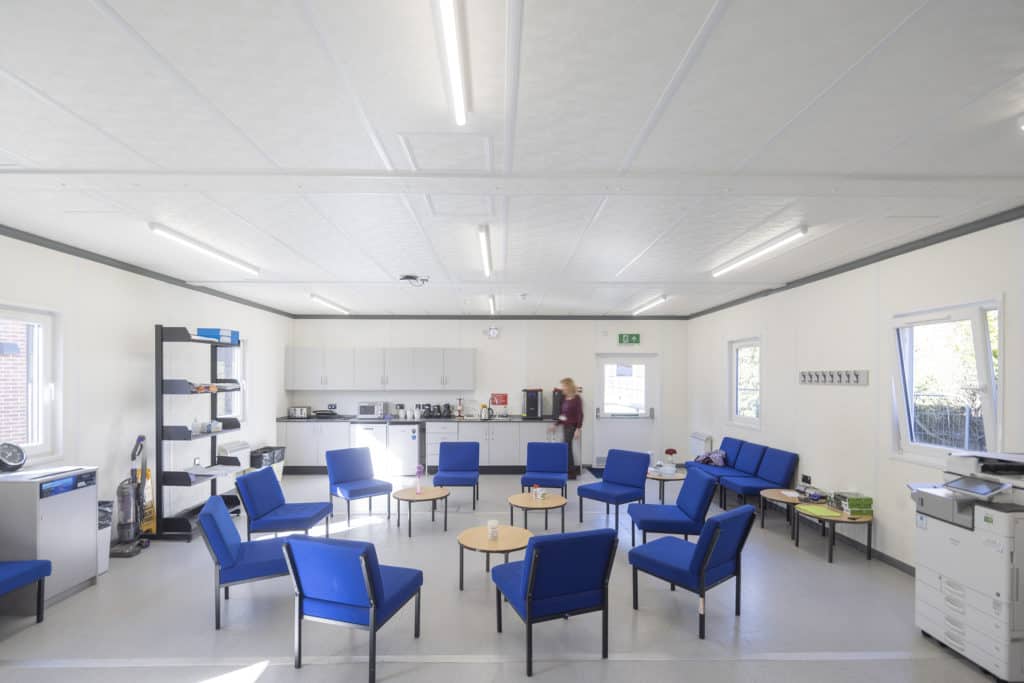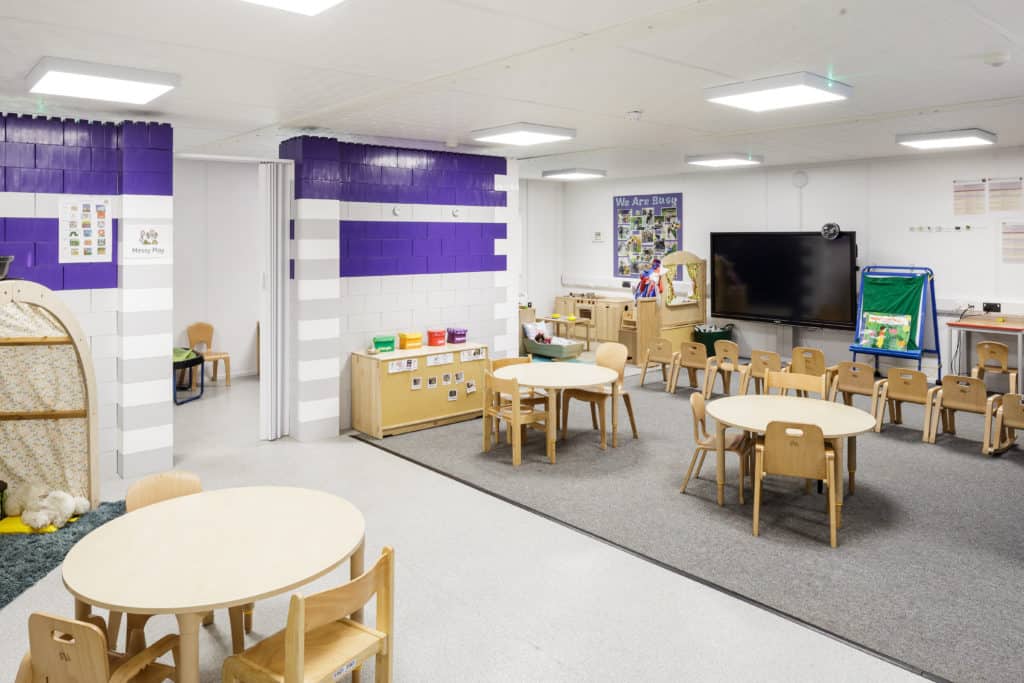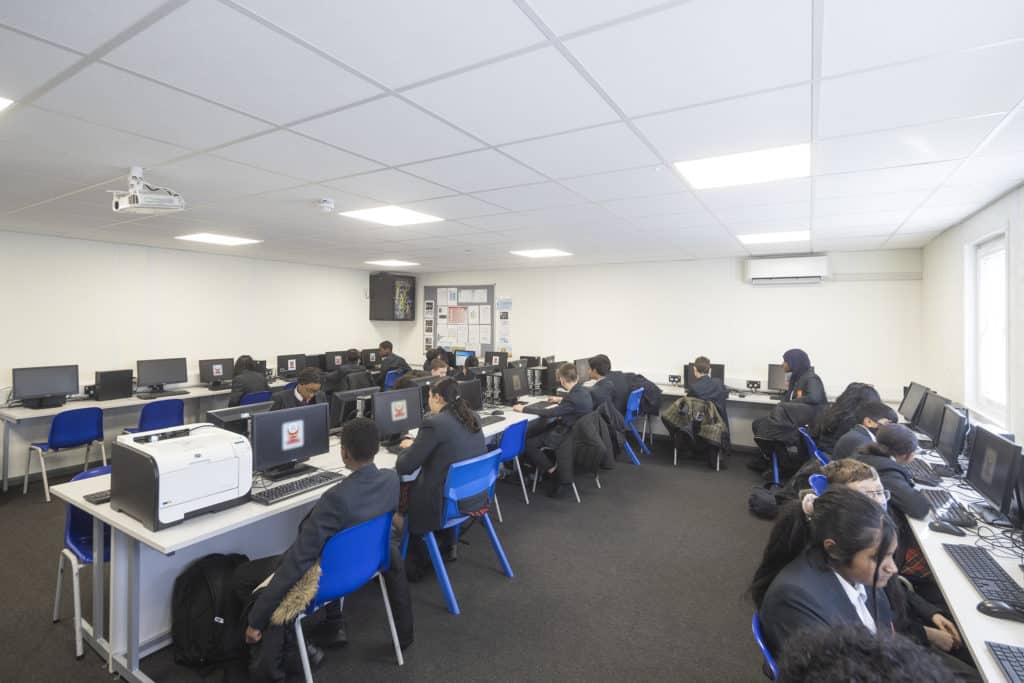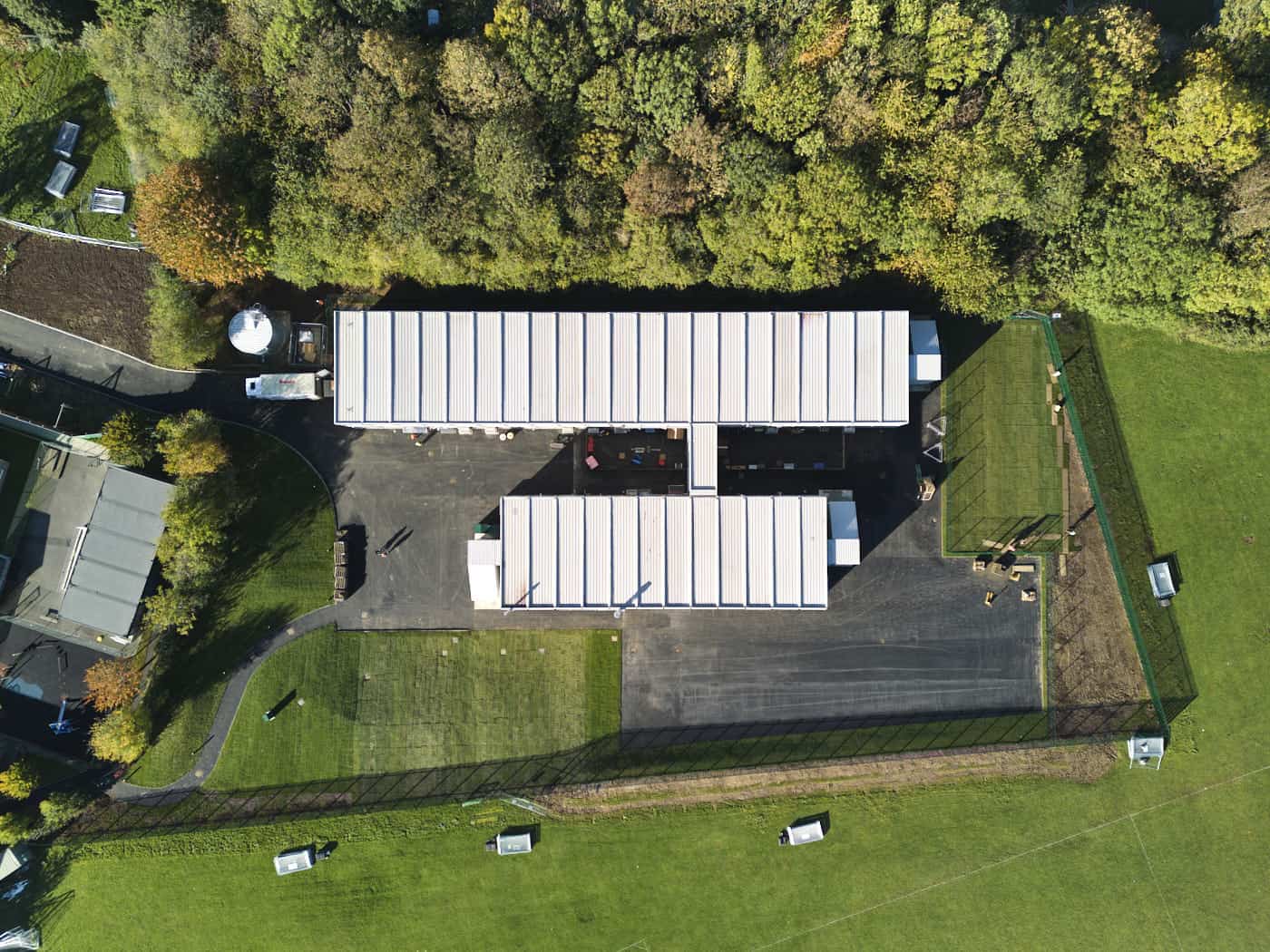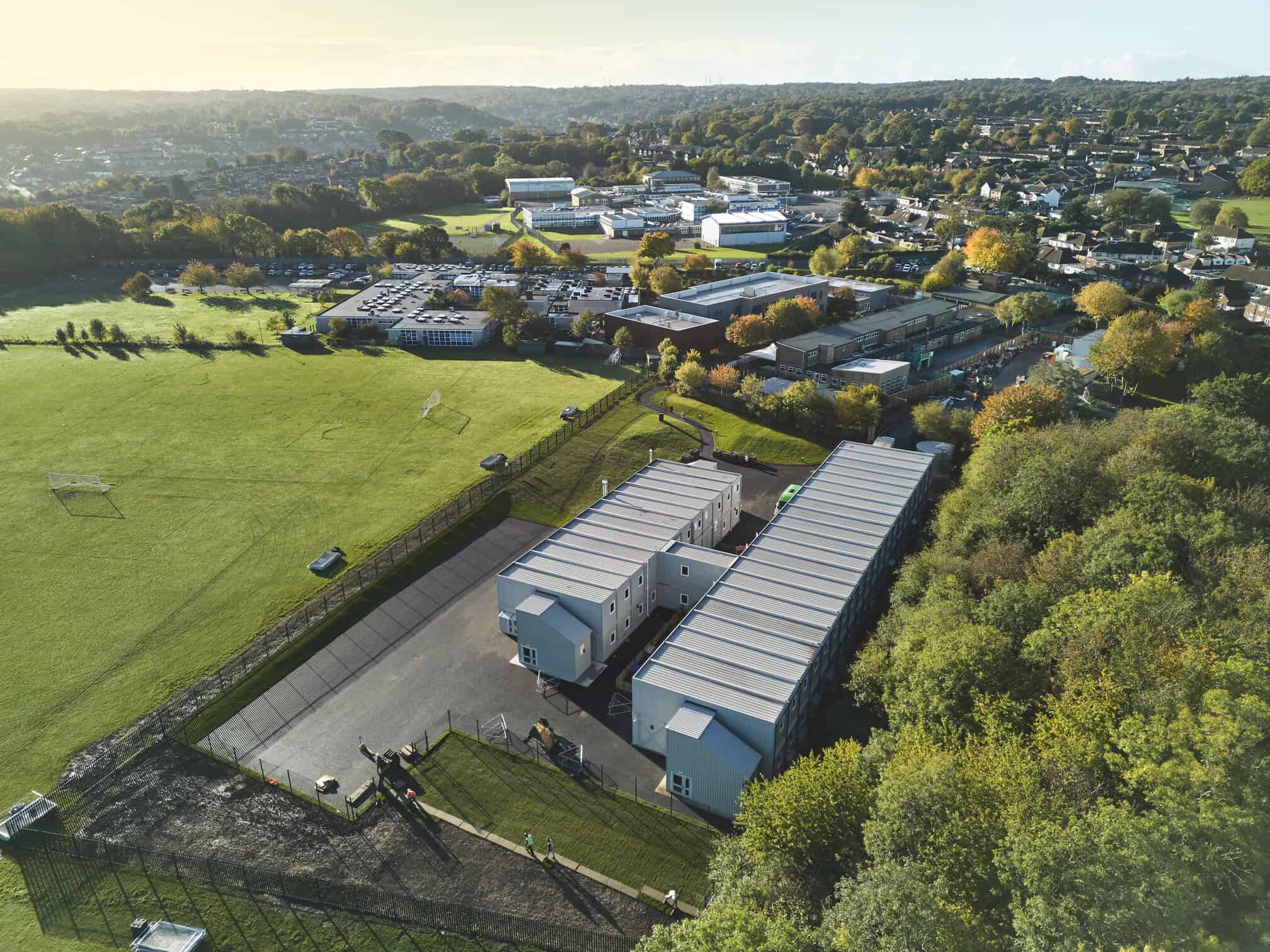The progressive disrepair of numerous school buildings in the UK continues to put school children and staff at risk, placing pressure on educational institutions to provide fast-tracked modern facilities. Reliable, precise and fast to install, modular buildings offer an answer to this growing problem.
The sustained deterioration of school buildings across the nation is accelerating demand for modern, future-proofed facilities. To help schools fund the construction and redevelopment of new buildings, the Department for Education (DfE) announced in May 2023 that it will be investing £456 million into 1,033 projects at 859 academies, sixth-form colleges and voluntary-aided schools.
Known as the Condition Improvement Fund (CIF), the investment builds on the government’s allocation of £1.8 billion capital funding in March and has arrived in good time. According to the DfE’s annual report of 2022, one or more buildings in a number of schools are at risk of collapse, an outcome that is largely due to the majority of these dating back to the period between 1945 and 1970. Faced with pressure to deliver safe learning environments quickly, it is imperative that schools are aware of the benefits modular buildings can provide.
What risks do some school buildings pose?
There are multiple older educational establishments in the UK, which comprise outdated buildings and classrooms no longer suitable or safe for use. Often, this is due to structural issues arising from the implementation of system-build light frame techniques as many of these buildings reach the end of their life cycle.
In certain schools, the fragility of these facilities is such that the National Association of Head Teachers (NAHT) have even acknowledged that the lives of some children are in jeopardy. With the chance of collapse in buildings defined as ‘critical – very likely’ in the DfE report, there is an urgent need for new facilities and refurbishments to be implemented with efficiency, and in a way that is not detrimental to pupils and proximal communities.
Simon Allford, president of the Royal Institute of British Architects (RIBA), touched upon this sentiment in his response to the CIF announcement, calling for “well-designed, energy-efficient schools” that “foster positive student engagement and support their communities.”
How can modular construction support education’s evolution?
With teaching methods and ways of learning becoming increasingly collaborative, it is essential that school buildings are designed to facilitate the evolving requirements of modern education. Accommodation of flexible learning is a must in any new or refurbished school building, a factor which Premier Modular ensures in each of its temporary and permanent modular solutions.
The project Premier completed for Tees Valley Multi Academy Trust exemplified this, with our specialist team designing and installing five, bespoke modular classrooms on the school site in just eight weeks. This is a prime example of the exacting detail that can be achieved through modular, and the classrooms embodied the Trust’s specifications down to the letter, incorporating tailored features that included:
- Sensory areas.
- Toilets with motorised sinks.
- Changing facilities for children with special educational needs.
Solutions like this, whether delivered flexibly through a rental contract, or otherwise, magnify the opportunity on offer to schools looking to invest in new or refurbished buildings. No matter the adaptations, size or facilities required, the lean manufacturing techniques and fast installation of the modular construction process enables the most complex of buildings to be delivered in a very short time frame.
Specialised spaces for future generations
One of the greatest benefits modular solutions can provide schools is the limitation of disruption to curricular activities; the process of offsite manufacturing ensures schools do not have to contend with the complexities and risks associated with a live building site for an extended period of time.
However, it is the adaptability of modular buildings that can bring about the biggest transformations in educational facilities. With a heavy focus on design, modular solutions can be flexibly tailored to satisfy very specific requirements, making it an ideal method of producing the progressive, engaging spaces the sector is craving. Whether it’s introducing specialised wall insulation to enhance acoustics or removing partitions to create open plan space, modular construction can encompass it all, and in considerably less time than traditional methods.
The award-winning project Premier Modular carried out for Douay Martyrs Catholic School is a perfect example. Work involved the creation and installation of 36 bespoke decant modules that provided high-performance learning environments whilst the school underwent refurbishment.
Designed to sit on a highly constrained site, the integrated facility included classrooms, high-standard laboratories and state-of-the-art areas to cater for special educational needs. Completed in three months, and to budget, the project underlined the flexible, future-proof design solutions that modular construction makes a reality. For schools wanting to invest in new facilities to support current and future generations of pupils, there is no better place to start than modular.
To explore Premier Modular’s range of building solutions, take a look at our permanent and rental pages today.
